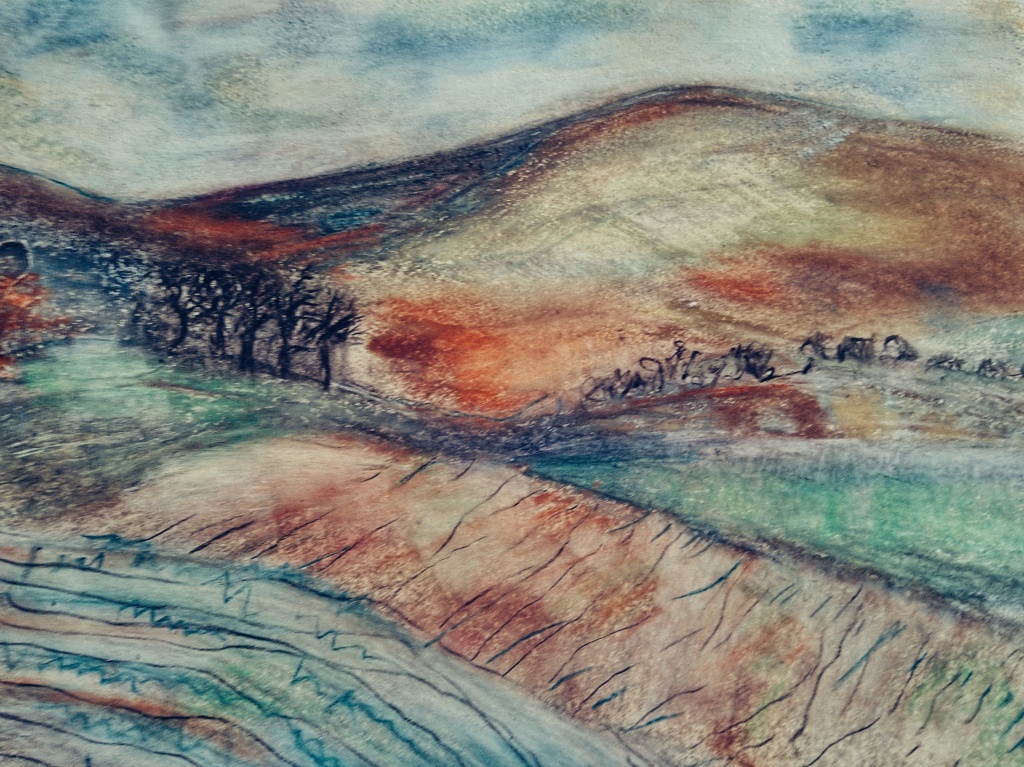
Playing with my etching tool








I would love to see a greater willingness to talk about death in our society. I believe our avoidance of it and fear of it creates many problems in our culture as well as diminishing the spiritual life.
It’s as though death is somebodies fault and we look for somebody to blame. This puts huge pressure on people trying to care for the sick as they are perpetually at risk of being blamed for the ageing and dying process.
Our health service is at breaking point not only because of the strains of the pandemic and years of underfunding but also because of the expectations of the public. Health has become like a consumerable, a right, if you aren’t happy, you demand recompense, which makes care givers very vulnerable to unfair accusations.
There is a lack of reality and truth in this which drives anxiety in care providers sometimes to the point of madness. An anxiety which is endemic in health and social care .
We need wisdom and wisdom prerequisites acceptance, especially an acceptance of the fact everyone is going to die and that we are not always in control of what happens to us and it’s not always somebody else’s fault.
In my work as a hospice nurse, I often would listen to people as they tried to come to terms with a poor prognosis and the reality of their own impending deaths. Most striking were those who had focused on making and saving money and how futile money making seemed in the face of death. Trying to prepare for death shows us what matters in life. It gives us the perspective we so badly need. People always regret not doing the things they dreamed of and not sustaining relationships. In other words the reality of death helps us not to take life for granted. It helps us not to waste the opportunities and relationships we are given.
Peace in oneself really matters because that discord or acceptance is what stays at the end. It’s important to be reconciled with others , to make peace with oneself and to live in a way that builds peace, in other words to listen to your conscience and to be able to forgive yourself and others when there is hurt.
Now I work on and off on a dementia unit and am disturbed by witnessing lives that have gone on too long, in which people can no longer recognise their children or their partners and have no orientation to the world they live in. It’s a horrible kind of no man’s land. For me this is more frightening than death.
So many of the people and relatives of the people we care for do not seem able to accept the reality of death. It’s a natural process, undoubtedly painful because people are being asked to let go of themselves and the people they love, but not being able to accept it leads to horrendous human suffering.
I do really find that the journey towards dying is the journey towards unity, to a life less about the ego and more about love. I believe we are all inextricably linked and that those loving relationships we build in our lives transform at the point of death but do not die like the body dies.
Love is the route to eternity. I cannot claim to know anything about an afterlife but I sense there is great joy in those who have lived with peace in their hearts or who have tried to live with compassion and peace. I think it’s best to focus on this as all the great religions advise but with an open heart and a huge capacity to forgive, especially oneself.
AFTER MAGGIE SAID
After Maggie said
It’s all the same stuff,
I knew to go with it,
To let my hands mould,
Breathe into the clay,
To allow the form to come.l
It was a matter of trust.
Trusting myself, the material, the process,
The desire for
art,
Like the sea swirling in a cove,
Water swaying back and forth,
Like breathing
Like music,
Like a recognition of something deep,
Something inside and outside,
Familiar and distant.
Sometimes quiet blue
Still and silk like,
Stretched out to the horizon
Where the fluidity of the sky
Loses itself and mingles.
Sometimes expressive
Ferocious even,
Colliding and crashing, frothing and spitting.
When the form came
It was a suggestion of two women
With long undulating hair, like waves,
Sweeping and curling over their
Rounded curves,
Holding their bodies together.
Like the visitation in EIN Kerem,
Mary and Elizabeth,
My women’s interfaith group,
All my friends,
Connecting and interwoven
Like rivers, like red clay,
like skin,
Echoing the promise
Of a world more feminine.




